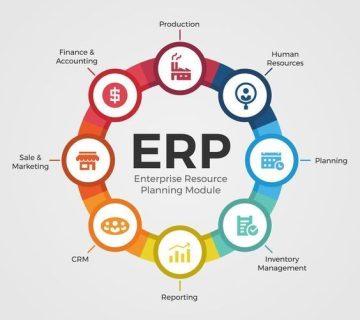As we step into the next decade, the future of digital marketing holds exciting prospects and transformative trends. This article explores the key trends and predictions that will shape the digital marketing landscape over the next ten years, providing businesses with insights to stay ahead in this dynamic industry.
Artificial Intelligence (AI) Revolution
Artificial Intelligence will revolutionize digital marketing, becoming an indispensable tool for businesses. AI-powered chatbots will deliver personalized customer support, enhancing user experiences. Machine learning algorithms will analyze vast amounts of data to optimize ad targeting and content personalization, driving higher conversions and engagement. The future will see marketers leveraging AI to understand consumer preferences, predict trends, and make data-driven decisions with unprecedented precision.
Voice Search and Voice-Activated Devices
Voice search and voice-activated devices will transform the way consumers interact with brands. The popularity of smart speakers and virtual assistants will continue to soar, reshaping search engine optimization (SEO) strategies. Marketers will need to optimize content for voice search queries, focusing on conversational keywords and concise responses. Voice-activated devices will also open up new avenues for brands to engage users through audio ads and personalized voice experiences.
Augmented Reality (AR) and Virtual Reality (VR) Experiences
AR and VR technologies will enable immersive brand experiences, offering consumers an unprecedented level of interactivity. Brands will leverage AR to showcase products in the real world through augmented try-ons, virtual showrooms, and interactive advertisements. VR will revolutionize storytelling, providing consumers with captivating virtual experiences and bringing remote events and product launches to life.
Hyper-Personalization
Hyper-personalization will become the norm in digital marketing, catering to consumers’ individual preferences, behaviours, and needs. Businesses will collect and analyze granular data to deliver highly relevant content, offers, and recommendations. Dynamic content optimization will enable real-time personalization across multiple touchpoints, fostering stronger connections between brands and consumers.
Privacy and Data Ethics
As data collection and personalization grow, so will concerns about privacy and data ethics. The future of digital marketing will demand a careful balance between personalization and respecting user privacy. Brands will need to be transparent in their data practices, obtain explicit user consent, and prioritize data security to build trust and maintain credibility.
Influencer Marketing 2.0
Influencer marketing will evolve beyond social media posts, embracing long-term partnerships and deeper collaborations. Brands will seek authentic influencers who align with their values and foster meaningful connections with their audiences. Micro-influencers, with niche and highly engaged followings, will gain prominence for their ability to drive targeted engagement and authentic advocacy.
Video Dominance
Video content will continue to dominate the digital landscape. Short-form videos, live streams, and interactive videos will capture consumers’ attention and drive engagement. Brands will invest in video marketing strategies to convey their messages effectively and creatively across various platforms.
Social Commerce
Social media platforms will further integrate e-commerce functionalities, blurring the lines between social engagement and online shopping. This is known as social commerce and will enable brands to sell products directly on platforms like Instagram and Facebook, offering seamless shopping experiences to consumers.
In conclusion, the future of digital marketing is teeming with exciting trends and predictions that will shape the industry over the next decade. Artificial Intelligence will drive efficiency and personalization, while voice search and VR/AR experiences will redefine interactions with brands. Hyper-personalization, data ethics, and privacy will demand responsible data practices from marketers. Influencer marketing will evolve into deeper partnerships, and video content will continue to dominate the digital landscape. Social commerce will bridge the gap between social media and e-commerce, creating new opportunities for brands to engage and convert customers. Businesses that embrace these trends and adapt to the evolving digital landscape, will position themselves to succeed in the dynamic and competitive world of digital marketing in the coming decade.



